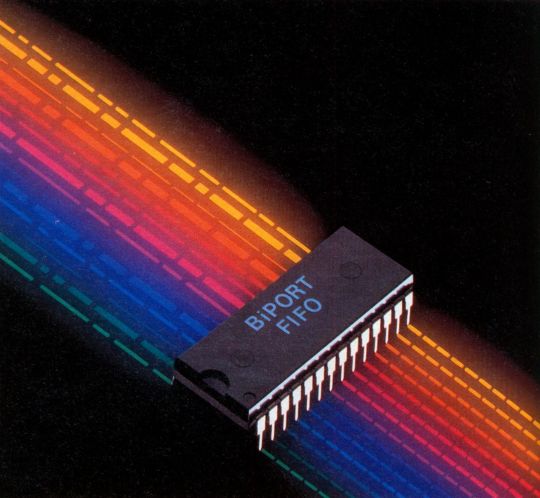Text
Noyce and Moore had left Shockley Semiconductor to found Fairchild, then left Fairchild to found Intel, where they hired dozens of Fairchild employees, including Andy Grove. Fairchild considered suing before deciding that it was unlikely to win a lawsuit against the geniuses who had built the chip industry.
0 notes
Text
Sporck sent one of his foremen and a group of assembly line workers to spend several months in Japan touring semiconductor facilities. When they returned to California, Sporck made a film about their experience. They reported that Japanese workers were “amazingly pro-company” and that “the foreman put a priority to the company over his family.” Bosses in Japan didn’t have to worry about getting burned in effigy. It was a “beautiful story,” Sporck declared. “It was something for all of our employees to see how that competition is tough.”
0 notes
Text
Carver Mead declared. “The catalyst is the microelectronics technology and its ability to put more and more components into less and less space.” Industry outsiders only dimly perceived how the world was changing, but Intel’s leaders knew that if they succeeded in drastically expanding the availability of computing power, radical changes would follow. “We are really the revolutionaries in the world today,” Gordon Moore declared in 1973, “not the kids with the long hair and beards who were wrecking the schools a few years ago.”
0 notes
Text
Managers like Sporck had no game plan for globalization. He’d just as happily have kept building factories in Maine or California had they cost the same. But Asia had millions of peasant farmers looking for factory jobs, keeping wages low and guaranteeing they’d stay low for some time. Foreign policy strategists in Washington saw ethnic Chinese workers in cities like Hong Kong, Singapore, and Penang as ripe for Mao Zedong’s Communist subversion. Sporck saw them as a capitalist’s dream. “We had union problems in Silicon Valley,” Sporck noted. “We never had any union problems in the Orient.”
1 note
·
View note
Text
Some colleagues at Fairchild were apprehensive. “The Red Chinese are down your nose,” one warned, eying the thousands of People’s Liberation Army soldiers stationed on Hong Kong’s northern border. “You’re going to get run over.” But the radio factory Noyce had invested in illustrated the opportunity. “The Chinese labor, the girls working there, were exceeding everything that was ever known,” one of Sporck’s colleagues recalled. Assembly workers in Hong Kong seemed twice as fast as Americans, Fairchild executives thought, and more “willing to tolerate monotonous work,” one executive reported
0 notes
Text
Pat Haggerty, the TI Chairman, had asked Jack Kilby to build a handheld, semiconductor-powered calculator in 1967. However, TI’s marketing department didn’t think there’d be a market for a cheap, handheld calculator, so the project stagnated. Japan’s Sharp Electronics disagreed, putting California-produced chips in a calculator that was far simpler and cheaper than anyone had thought possible. Sharp’s success guaranteed most calculators produced in the 1970s were Japanese made. If only TI had found a way to market its own branded devices earlier, Haggerty later lamented,
0 notes


